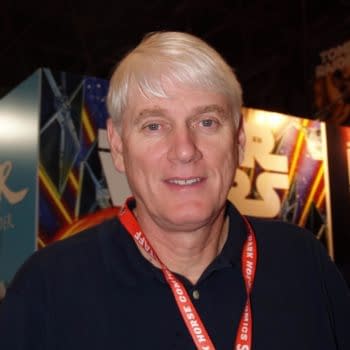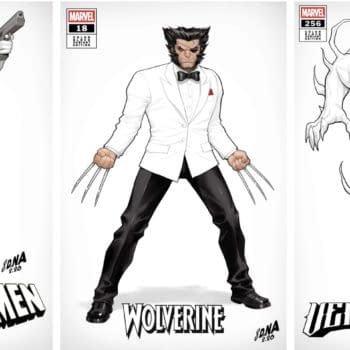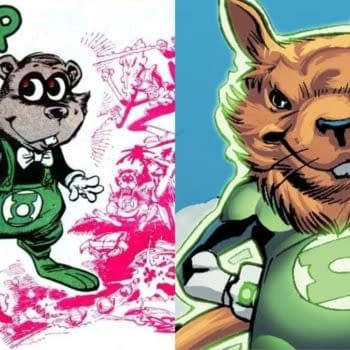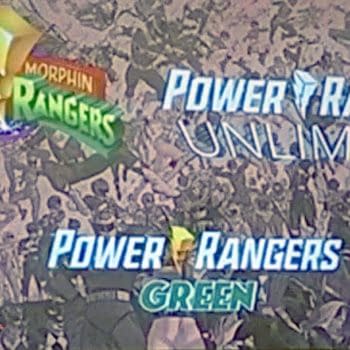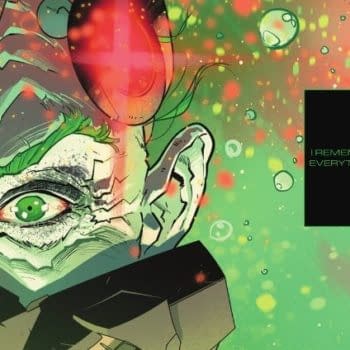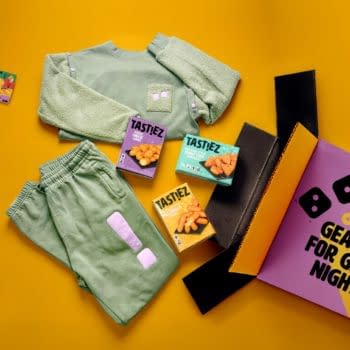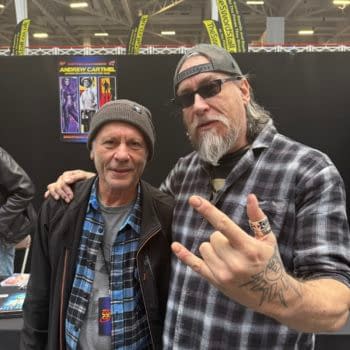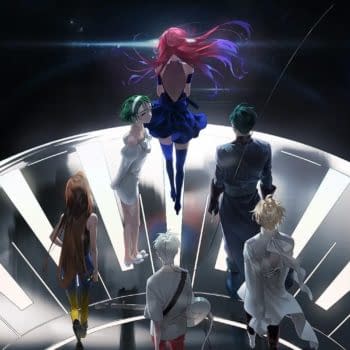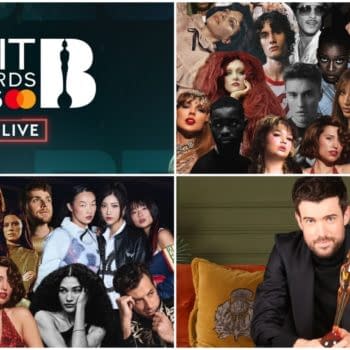Posted in: Books, Pop Culture | Tagged: jk rowling, sunday times
Writers, Actors, Musicians, Speak Out Against #RIPJKRowling Hashtag
What does the #RIPJKRowling hashtag signify? Well, JK Rowling has been continuing to hitting the headlines of late for more of the things JK Rowling has been hitting headlines for of late. Initially having earlier transphobic retweets dubbed as middle-aged moments, in May she accidentally cut and pasted a news report over a legal case that misgendered the defendants, against court advice to the media, revealing the kind of material she had been seeking out. In June, she commented on a news report that talked about "people who menstruate" adding "If sex isn't real, there's no same-sex attraction. If sex isn't real, the lived reality of women globally is erased. I know and love trans people, but erasing the concept of sex removes the ability of many to meaningfully discuss their lives. It isn't hate to speak the truth."
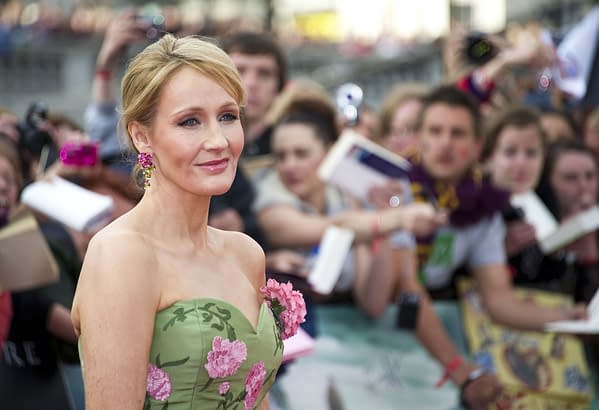
This month, it was widely reported that JK Rowling's new novel, under her crime-thriller pseudonym Robert Galbraith, would feature a 'transvestite serial killer', creating a wave of new controversy that took the book to the top of the best-seller charts. This was then followed by tweets promoting a clothing and accessories store with a 'gender critical' line that some have described as Terf Merch. Indeed the site itself describes some of them like that. Including "Member of TERF" and "Notorious Transphobe" mugs.
This was then followed by the #JKRowlingRIP hashtag kicking off on social media. "The Death of the Author" is a 1967 essay by the French literary critic and theorist Roland Barthes. Barthes's essay argues against traditional literary criticism's practice of incorporating the intentions and biographical context of an author in an interpretation of a text, and instead argues that writing and creator are unrelated. It has been brought up repeatedly in relation to whether people could still enjoy JK Rowling's work while being opposed to her views, as repeatedly expressed.
The #RIPJKRowling hashtag was intended to signify that JK Rowling was dead to them, in terms of her work, rather than as a threat. You see it used for other people and events as well. But some people saw it being used as a death threat. And some people who were retweeting it may have thought that too. Either way, the great and the good of UK literati have come out in support of JK Rowling against said hashtag, albeit it showing no sign that there may be nuance at play here.
The letter below was published in the Sunday Times today and was signed by 58 individuals, including Ian McEwan, Frances Barber, Andrew Davies, Griff Rhys Jones, James Dreyfus, Jimmy Mulville, Simon Fanshawe, Alexander Armstrong, Ben Miller and of course Graham Linehan.
WE STAND WITH JK AGAINST HATE
JK Rowling has been subjected to an onslaught of abuse that highlights an insidious, authoritarian and misogynistic trend in social media.
Rowling has consistently shown herself to be an honourable and compassionate person, and the appalling hashtag #RIPJKRowling is just the latest example of hate speech directed against her and other women that Twitter and other platforms enable and implicitly endorse.
We are signing this letter in the hope that, if more people stand up against the targeting of women online, we might at least make it less acceptable to engage in it or profit from it.
We wish JK Rowling well and stand in solidarity with her.
Ian McEwan, author; Lionel Shriver, author; Griff Rhys Jones, actor; Graham Linehan, writer; Maureen Chadwick, writer; Andrew Davies, writer; Frances Barber, actress; Craig Brown, writer; Alexander Armstrong, actor; Amanda Craig, writer; Philip Hensher, writer; Susan Hill, writer; Jane Thynne, writer; Ben Miller, actor; Simon Fanshawe, writer; James Dreyfus, actor; Frances Welch, writer; Francis Wheen, writer; Arthur Matthews, writer; Aminatta Forna, writer; Joan Smith, writer; Nick Cohen, journalist; Kath Gotts, composer & lyricist; Ann McManus, writer; Eileen Gallagher, writer & producer; Jimmy Mulville, producer; Lizzie Roper, actress; Stella O'Malley, author; Nina Paley, animator; Julie Bindel, journalist; Abigail Shrier, journalist; Rachel Rooney, author; Jane Harris, writer; Tatsuya Ishida, cartoonist; Lisa Marchiano, author; Zuby, musician and author; Debbie Hayton, journalist; Gillian Philip, Author, Jonny Best, musician; Manick Govinda, arts consultant; Russell Celyn Jones, writer; Magi Gibson, writer; Victoria Whitworth, writer; Dr Mez Packer, writer; Grace Carley, producer; Sam Leith, journalist; Malcolm Clark, television producer-director; Shirley Wishart, musician; Charlotte Delaney, writer; Nehanda Ferguson, musician; Justin Hill, writer; Trezza Azzopardi, writer; Birdy Rose, artist; Jess de Wahls, textile artist; Mo Lovatt, writer; Simon Edge, novelist; Tom Stoppard, playwright; and Amanda Smyth, writer






